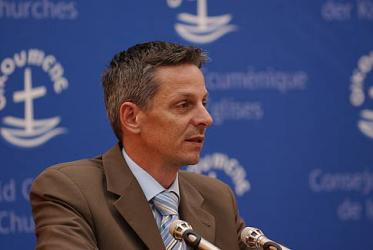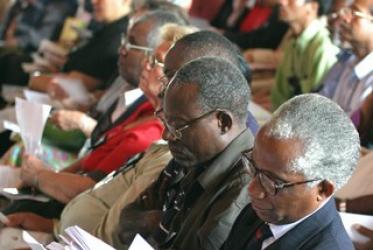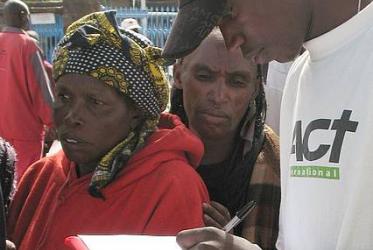Displaying 7521 - 7540 of 8611
18 February 2008
Kenya needs voice of churches
15 February 2008
Kingston will host WCC peace convocation in 2011
15 February 2008
WCC dreams of broader Assembly
15 February 2008
A new book launches
14 February 2008
Kobia sees changing landscape
14 February 2008
Serving as stewards
14 February 2008
Table talk
13 February 2008
Moderator urges perseverance toward unity
13 February 2008
Week of Prayer for Christian Unity
13 February 2008
WCC welcomes two new member churches
13 February 2008
In Burundi fear of guns drives insecurity
04 February 2008
Eminent Ecumenical Persons on solidarity visit to Burundi
04 February 2008
Kenyan churches seek peace for country "on the verge of genocide"
01 February 2008
Kenyan churches to receive WCC solidarity visit
29 January 2008



















